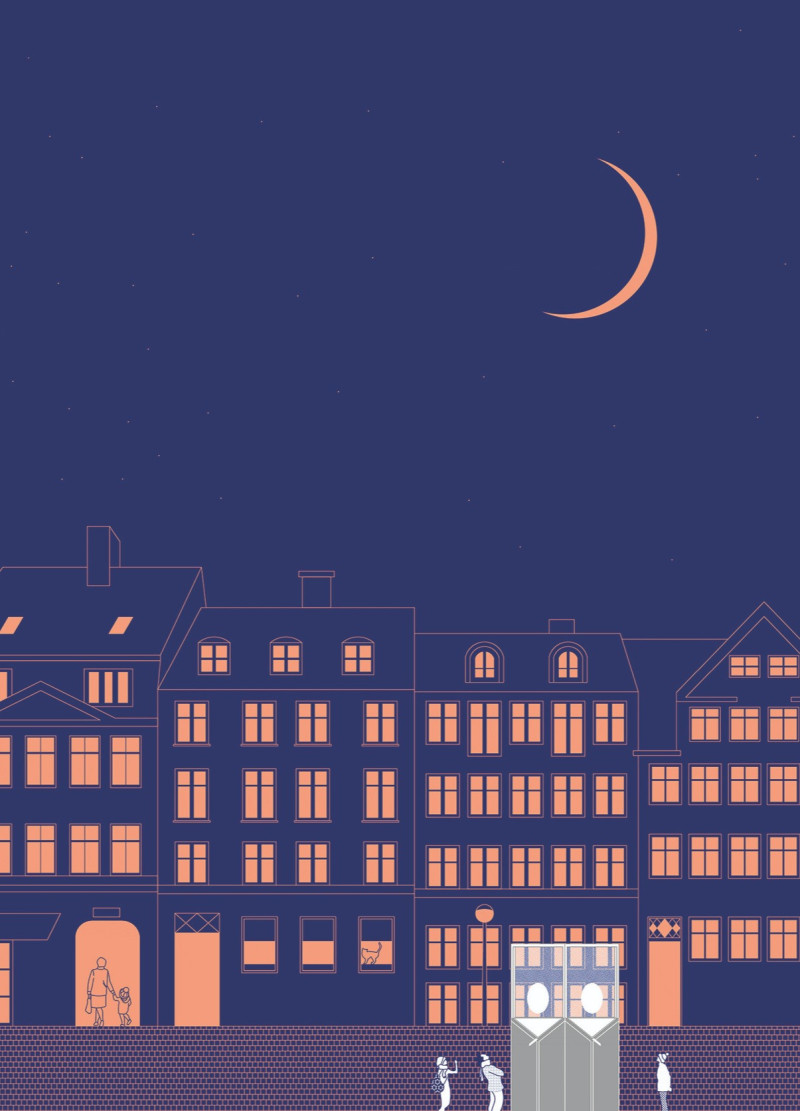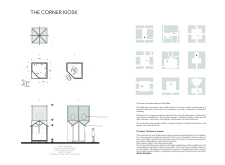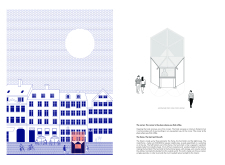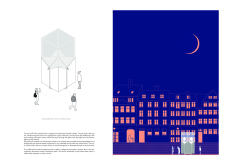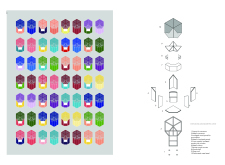5 key facts about this project
At its essence, the Corner Kiosk embodies the concept of accessibility and community interaction. It is designed not only as a service point for coffee but also as a gathering place where people can pause, connect, and enjoy their surroundings. The architectural form of the kiosk fosters a sense of place, with its carefully considered design inviting pedestrians to stop and engage with the space. By situating itself at a corner, the kiosk maximizes visibility and draws in foot traffic, reinforcing its role as a focal point in the urban landscape.
The architectural design of the kiosk is characterized by several significant components that enhance its functionality and aesthetic appeal. The structure features a robust metal frame made from 40/40 mm square pipes, providing stability and durability. This frame supports the entire structure while allowing for flexibility in design. Insulated wood panels are integrated into the ground floor, ensuring comfort for patrons and promoting energy efficiency. The choice of materials reflects a commitment to sustainability, a vital aspect of modern architectural practice.
A unique feature of the Corner Kiosk is its perforated metal sheets that wrap around the upper portion. These sheets serve a dual purpose: they enhance the visual identity of the kiosk while allowing for light to filter through, creating an inviting ambiance during the day and at night. Additionally, the glass roof is a notable design element that further contributes to the kiosk's ability to connect with its environment. It brings in natural light and minimizes the divide between indoor and outdoor spaces.
The interior layout has been thoughtfully configured to support its primary function as a coffee shop. A wooden counter serves as the focal point for service, adding warmth to the space and encouraging interactions between the barista and customers. The layout facilitates smooth traffic flow, ensuring that patrons can easily navigate the space without feeling cramped or congested.
One of the most distinctive aspects of the Corner Kiosk is its modular construction. This design allows the kiosk to be easily assembled and disassembled, making it adaptable to various urban environments. This feature not only extends the life of the structure but also underscores a forward-thinking approach to architecture. By prioritizing adaptability, the Corner Kiosk embodies a contemporary understanding of how public spaces can evolve and respond to changing urban dynamics.
In summary, the Corner Kiosk is an exemplary project that integrates thoughtful architectural design with a clear functional purpose. It stands as a testament to the role of architecture in enhancing community interaction within urban settings. The attention to materiality, coupled with innovative design choices, distinguishes this project as a noteworthy addition to contemporary architecture. For those interested in a deeper understanding of its design and layout, exploring the architectural plans, architectural sections, and architectural ideas behind this project will provide valuable insights into its successful execution.


